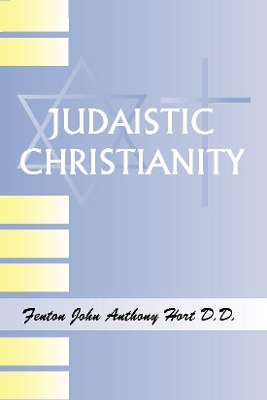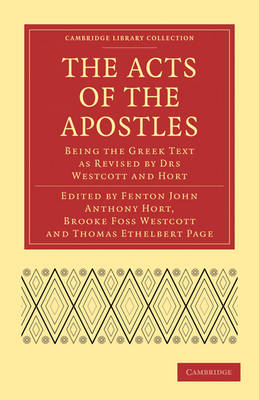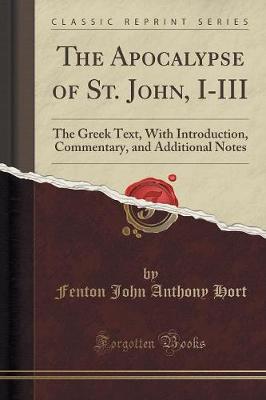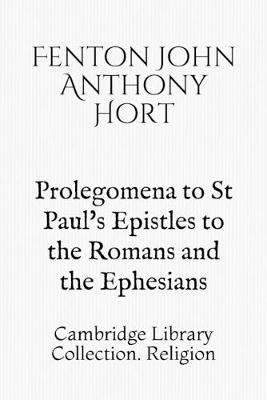Cambridge Library Collection - Biblical Studies
4 total works
In these lectures published posthumously in 1894, the biblical scholar and theologian Fenton John Anthony Hort draws on his work on the early Christian Church and its transition from Judaism in the Apostolic period. Throughout his career, Hort devoted himself to the study of Christian history and to the joint editorship of a critical edition of the New Testament in Greek and, later, modern English. In his last years teaching at Cambridge University, his efforts centred on proving a first-century dating for the New Testament books, and researching the history and development of the church as described in them. The lectures in this volume respond to arguments of Hort's contemporaries, notably F. C. Baur and the Tubingen school, for a second-century dating. To support his case, Hort examines the relationship between Judaistic, Gentile and Pauline Christianity and analyses New Testament accounts of Christ's attitude to the Jewish faith.
This annotated edition of The Acts of The Apostles was prepared for classroom use by Thomas Ethelbert Page, a schoolmaster at Charterhouse, and published in 1886. The text is taken directly from the critical edition of the New Testament in Greek published by Fenton Hort and Brooke Westcott in 1881, the most authoritative version then available. Page's extensive annotations (over two hundred pages to accompany seventy pages of text) aimed to provide an explanation of the Greek text free of doctrinal discussions and moral reflections, unlike most existing commentaries which Page found 'quite unadapted for practical work with boys'. Page endeavoured to make the translation process as straightforward as possible and his extensive commentary offers a clear and simple understanding of the text. His book is still a useful guide for those approaching the Greek text for the first time.
Fenton John Anthony Hort (1828-1892) was a scholar of the Bible, Patristics and theology who served as Hulsean and Lady Margaret's Professor of Divinity at Cambridge. Among his scholarly contributions are the foundational critical edition of the Greek New Testament as well as portions of the magisterial The Ante-Nicene Fathers. This short book is a posthumous edition of Hort's lectures discussing the authorship, dating and introductory chapters of the Book of Revelation. While the 1908 publication represents, as the preface notes, 'scholarship in undress', it does so with skill. Positing an earlier date of authorship than traditionally held and asserting authorial unity with the rest of the Johannine corpus, this compact work is an important example of focused historical criticism. The commentary on the first three chapters of the Apocalypse further underscores the contribution of this notable scholar at the height of his prowess.
Prolegomena to St Paul's Epistles to the Romans and the Ephesians
by Fenton John Anthony Hort
Published 26 November 2009
This posthumous volume, published in 1895, contains two lectures delivered in the 1880s by the biblical scholar F. J. A. Hort, Professor of Divinity at Cambridge. In these lectures, Hort addresses the question of the dating of Romans and Ephesians, their purpose, and their original readership. He examines their context in the relationship of Judaism to Christianity in the Apostolic period and the difference between Gentile, Judaistic and Roman Christianity. By treating the Epistles as historical as well as religious artefacts and analysing their language and grammar as well as content, Hort argues for the authenticity of both texts and therefore for a first-century dating. The dating of the New Testament was a central concern of Hort toward the end of his career, and he argued against F. C. Baur and the Tubingen school, who placed it in the second century. These lectures present evidence to support his argument.



